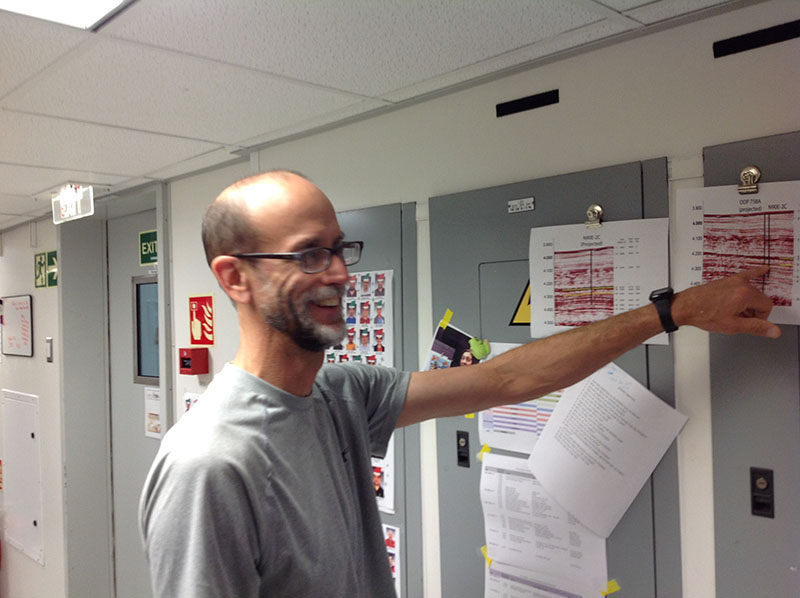
STUDENTS WANT TO KNOW: Q & A WITH CO-CHIEF STEVEN CLEMENS
What does it take to lead a group of people on a ship. What are the expected traits?
Leading an expedition like this at sea is all about planning ahead.
For example, scientists on the ship have a wide range of scientific experience, from master’s students to Ph.D. students, to post-doctoral researchers, all the way through full professors.
Some have sailed before, some have never sailed before. In this case, for every lab group, we have taken care to pair more experienced scientists with less experienced scientists so that no one is overwhelmed and all can learn from one another. The easy part of leading a group like this is that every one here is very excited to be part of the team and is willing to work 12 hours a day for 60 days with no breaks in order to accomplish the expedition goals. Leading such a willing team is easy.
Another example of needing to plan ahead is that one never really knows what might happen at a given drill site. We have identified our drilling targets using seismic data that provides us a preliminary estimate of what we might find but there can still be surprises (both good and bad). In the event that a drill hole goes bad and we cannot drill it as planned we have back-up targets we can move to.
How many cores are you expecting to find in the Indian ocean
region?
We expect to recover a total of about 5.5 kilometers section (~3.5 miles) from six sites. This equates to somewhere between 500 and 600 cores
How big are the core samples?
Each core is 9.5 meters (~30 feet) long.

How can the core sample help you study the past?
Sediments in the ocean build up layer on top of layer over time such that the oldest sediments are at the bottom and the youngest are at the top (at the sea floor). The important point to know is that these sediments that pile up on the sea floor over time were actually created on land and in the surface oceans as the result of changes in climate (surface temperature, wind patterns and biological productivity). We can analyze the physical, chemical, isotopic and biological composition of the sediments and reconstruct the changes in climate
over time.
Have you made any recent scientific discoveries? have you made any new discoveries?
It will take several years of research back in our laboratories before we know the answers to the questions we have come here to answer.
Do you like being at sea most
of the time?
Scientists who spend time at sea are generally really fun, outgoing people with a deep and burning interest in
science and discovery. They are great fun to work with so, yes, it’s enjoyable.
WHAT IS REQUIRED TO BE AN INTERN ON THE JR?
Technicians on the JR have strong backgrounds in sciences ( biology, physics, math, engineering….and more)